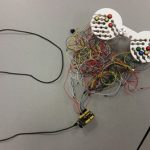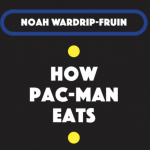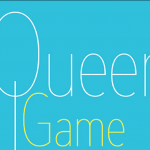first person
Repetition and Defamiliarization in AI Dungeon and Project December
Alex Mitchell (leader of the Narrative and Play Research Group at the National University of Singapore) shows how, while generative text adventure AI Dungeon allows players to uncritically interact with the AI system as they co-create a story, Project December instead primes the player for reflection and interpretation. Unlike most digital games, which emphasize immersion, this brings forward the problematic nature of their technology platforms: foregrounding rather than normalizing the strangeness of the experience, or even generating a kind of "spooky magic," as Project December creator Jason Rohrer puts it.
“Is this a game, or is it real?”: WarGames, computer games, and the status of the screen
In her essay “Is this a game, or is it real?”, Naomi Mandel revisits WarGames, a 1983 film that significantly shaped the popular imagination of computer games and military networked technology at the time. Mandel argues that the film prompts a non-mimetic reading that emphasizes deeper, infrastructural and operational meanings of the screen. Placing it in the context of the history of computer games, Mandel points out that WarGames anticipates the evolution of the medium by playing with distinctions between real world and game, and questioning whether such distinction matters at all.
Applied Media Theory, Critical Making, and Queering Video Game Controllers
This essay explores intersections among queer theory, critical making methodology and inclusive design through a research creation piece that aims to problematize normative video game controller schemes.
Being the Asterisk: Noah Wardrip-Fruin and the Future of Game Studies
What is the connection between how computer games work and what they mean? What do we do with games and what do they do to us? In its exploration of these questions, Stuart Moulthrop sees Noah Wardrip-Fruin’s How Pac-Man Eats (MIT Press, 2020) as helping to urge game studies in a productive new direction: one that critically traces interactions between games and the broader culture in which they're embedded. More specifically, he observes some of the ways Wardrip-Fruin’s work links “technē to social purpose”, and thereby “re-engages questions of value and justice”. This, he contends, is part of what distinguishes this author—"a scientist who is also a socially aware literary writer", as he approvingly puts it—from many of the “anatomists” with whom he founded this developing field.
What is Queer Game Studies?
Addressing a lacuna in games studies, Jason Lajoie makes a case for why a queer games studies is needed, and he shows how these two areas of study are united in Bonnie Ruberg's and Adrienne Shaw's collection.
“Bad Disruption”
ebr Associate Editor Lai-Tze FAN responds to Dani Spinosa's review of llegal Literature: Toward a Disruptive Creativity, by David S. Roh.
Love Will Tear Us Apart, Again: Tupitsyn Art Review
McKenzie Wark explores the work of Masha Tupitsyn as a pathway into the conditions of life in the 21st Century, somewhere above (or below) the framework of mediated experience, even beyond the limits of what we often call "theory." With Tupitsyn, Wark troubles the current stasis of representation that stultifies thought in this age of unrepentantly industrialized culture, not by turning us away from the spectacle, but by smashing right through it, picking up its pieces, and discovering new things in the wreckage.
Field Notes from the Future of Publishing
At the Frankfurt Book Fair, Ed Finn and his team attempted to "write, edit, and publish a book in three days." In this essay, Finn explains the process, outcomes, and future considerations of that collaborative experiment in writing, reading, and publishing in parallel and as performance, in the same room at the same time, as he attempts to answer the question, "What is the future of publishing?"
Language as Gameplay: toward a vocabulary for describing works of electronic literature
Just as Walter Benjamin declared that all "great works of literature either dissolve a genre or invent one," Brian Kim Stefans argues that all successful works of electronic literature are sui generis and invent their own genre. There can be a vocabulary for this invention, however, and Stefans sets out “The Holy Grails of Electronic Literature,” “Six Varieties of Crisis,” and the “Surrealist Fortune Cookie.” Through these concepts, he describes the formal challenges, reading experiences, and fundamental textual units of electronic literature.
Critical Code Studies Week Five Opener – Algorithms are thoughts, Chainsaws are tools
Stephen Ramsay introduces a short film in which he does a live reading of composer Andrew Sorensen's performance "Strange Places" and provides commentary.









